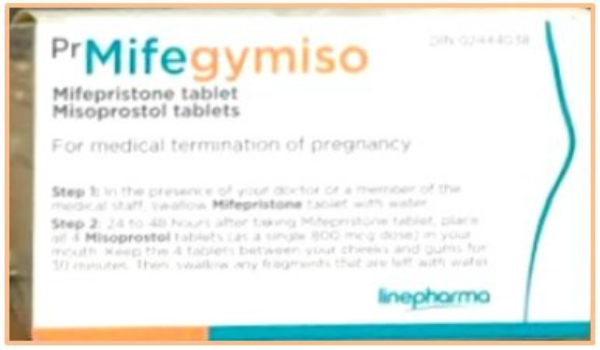
Health Canada has reviewed current evidence and removed quite a few restrictions on distribution, prescription, and dispensing of mifepristone+misoprostol in Canada.
Mifepristone is now covered by federal regulations similar to other prescription drugs, with previous additional restrictions on distribution, prescribing and dispensing removed. Regulation of health professional provision is now in the jurisdiction of the respective health professional regulatory colleges and can be guided by evidence-based best practice, such as the Society of Obstetricians and Gynaeologists’ (SOGC) medical abortion guidelines of April 2016.
Changes instituted by Health Canada include:
> Women may now receive a prescription from a primary care doctor, a nurse, a midwife or a pharmacist who is allowed to dispense medications. They can take the prescription to a pharmacist to fill, then decide for themselves when and where they wish to take the medication.
> Gestational age limit has been extended from 49 to 63 days, the limit requested by Celopharma when they applied for approval. However, SOGC clinical guidelines provide evidence supporting use to 70 days, the limit agreed last year by the USFDA, and many facilities are said to openly tell women they can do so.
> Health Canada still recommends that patients give informed consent.
> Mandated health professional training is no longer required: The new language, as for all health professional care, says: “Health care professionals should have the appropriate knowledge.” The SOGC accredited training programme is still offered for a fee, and a free training programme is now also available from Celopharma, the company distributing the combined pill packet.
> Ultrasound is still recommended, to exclude ectopic pregnancy, although WHO has said it is not required routinely.
The ultrasound requirement is an important barrier in rural areas of Canada, so not all barriers have been eliminated.
The requirement for a doctor to observe the woman take the mifepristone pill was removed a year ago though the new guideline still says the woman can take the pill in the facility or at home.
SOURCE: Health Canada guidelines, updated 7 November 2017, and e-mails from several Campaign members from Canada. See also: MIFEGYMISO (mifepristone and misoprostol tablets) – Canadian Distribution and Administration Program



